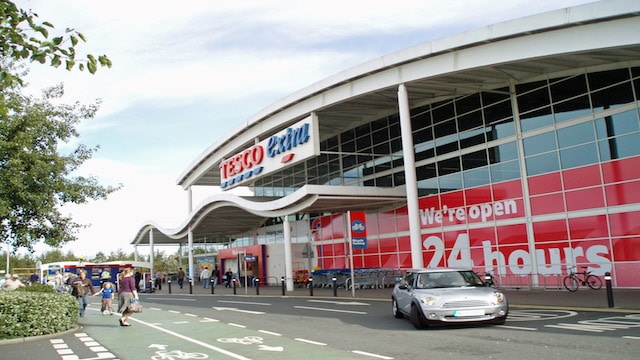The Tesco (LSE: TSCO) share price has struggled so far in 2022, falling over 14% year-to-date. 10% of that fall has come in the last month alone, a situation I attribute to the news that UK CPI inflation reached 7.8% in April.
That being said, the shares are up 8% in the last 12 months. So, is the recent dip the perfect opportunity for me to grab some cheap Tesco shares for my portfolio? Or should I steer clear of the UK’s largest supermarket chain?
Rising costs
As mentioned, inflation in the UK was nearly 8% in April. This poses a whole host of problems for Tesco. Firstly, it could force it to raise prices, as its production costs will have inevitably risen. This could push customers away from Tesco and towards cheaper competition such as Lidl and Aldi.
Should you invest £1,000 in Sainsbury's right now?
When investing expert Mark Rogers has a stock tip, it can pay to listen. After all, the flagship Motley Fool Share Advisor newsletter he has run for nearly a decade has provided thousands of paying members with top stock recommendations from the UK and US markets. And right now, Mark thinks there are 6 standout stocks that investors should consider buying. Want to see if Sainsbury's made the list?
Tesco could also face rising wage threats stemming from the high inflation. It currently employs 345,000 people. Raising the hourly wage even a fraction could add millions to operating costs. In addition to this, rising fuel costs will also place pressure on grocery delivery profits.
Tesco already operates with wafer-thin 2.26% profit margins. Therefore, the above inflation-linked threats pose a huge risk to the supermarket’s profitability.
Encouraging results
Although inflation is a risk, Tesco’s FY2022 results contained some encouraging metrics. Sales increased steadily, leading to a group profit of £2.8bn. This figure marked a 58.9% increase from the year before. The dividend was also 10.9p for a healthy 4.3% yield at the current share price.
Tesco also increased its market share to over 27% in the last year. A key driver behind this has been the Clubcard scheme, which encourages brand loyalty by offering cheaper prices to members. The expansion of this scheme should help the chain retain its strong customer base in the face of low-price competition.
Valuation
The Tesco share price trades on a price-to-earnings (P/E) ratio of 12.7. This seems like decent value for a prospective investor like myself and isn’t too far off the traditional ‘value’ barometer of 10. It’s also below the FTSE 100 average of 14.9.
That being said, competitors J Sainsbury and Marks and Spencer currently trade on P/E ratios of 7.4 and 9.2 respectively. This signals to me that the Tesco share price could be overvalued compared to the wider industry.
A buying opportunity?
The recent positive results do give me confidence in the share price. However, I think that inflation poses too much of a multifaceted risk to the firm. I also think the shares look a little steep considering the wider industry’s valuation. As such, I won’t be buying Tesco shares for my portfolio today.








